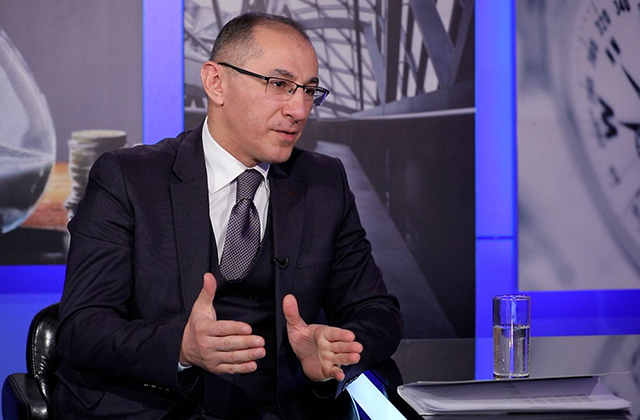The economy of Artsakh suffered a loss of 220 million dollars during the days of blockade. Vardan Aramyan
Artsakh has been under siege from December 12, 2022. The only “Road of Life” connecting with the external world and feeding Artsakh’s economy has been closed by the self-proclaimed “Eco Activists” of Azerbaijan. It is absolutely unrealistic that, eco-activists of Azerbaijan, which is substantially lagging behind Armenia according to the ranking of international institutions for the freedom of speech and environmental issues, are worried about the environmental issues of Artsakh, which mirrors the environmental regulations and norms of Armenia, as well as has a society living with democratic values.
Moreover, Azerbaijan was the first country in the history of “Extractive Industry Transparency Initiative” (EITI) – international organization in the mining sector, whose status was suspended in 2017 and it was done on the basis of Azerbaijan’s pressure on civil society, restrictive laws and failure to meet the corrective actions.[1] The same problems, severe restrictions, imposed on the civil society remained unchanged in Azerbaijan in the future, as evidenced by the assessments by other bodies.[2] From the environmental protection perspective, Azerbaijan with its regulations is lagging unprecedentedly behind Armenia (and therefore also Artsakh) also in terms of the Environmental Performance Index (EPI), ranking 104th (Armenia ranks 56th).[3]
Unlike Azerbaijan, within the same EITI membership, Armenia was among 9 countries that received the highest rating not only for meeting the international standard in mining, but also for exceeding the requirements. In addition, Armenia received a special award from EITI Chairmanship.
At the time of preparing this document, Artsakh’s “Road of Life” is still closed, which results in economic as well as social costs for Artsakh. It is obvious that the closure of the “Road of Life” paralyzes Artsakh’s economy, deprives it of the supply of essential resources, making it a classic autarky. Since Artsakh’s economy is small, does not have an economy of scale and is not self-sufficient, every additional day of the blockade deepens economic costs and intensifies social tension with a multiplier effect.

This document has been prepared by the request of the Government of Artsakh. Here an attempt has been made to estimate the economic losses of Artsakh due to the blockade. In order to ensure possibly accurate estimation of the problem, the team of economists made assessments with several approaches, applying various toolsets (econometric and statistical assessment methods, methods of analyzing enterprise data and macroeconomic data correlation method, expert judgements based directly on GDP structure trends and fundamentals data), in order to make the results invulnerable. Moreover, the estimated economic costs were broken down to a daily level, because it is not clear how long Azerbaijan’s humanitarian crisis-creating actions will last or whether they will be repeated in the future or not. Apart from the assessment of economic costs, an attempt was made to assess the burden of additional social costs, which will inevitably arise as a result of the collapse of economic structures, due to unemployment and loss of income of individuals. In addition to this, the budgetary impact was also assessed, because on the one hand, the budget will be deprived of taxes and this will lead to the forced non-fulfillment of some budgetary expenditures if the volume of financial allocations from Armenia remains unchanged, on the other hand, the demand for expenditures will increase with the dictates of mitigating the caused damages or withstanding similar shocks in the future
[1] Reference: https://eiti.org/countries/azerbaijan?fbclid=IwAR3QocQYX8ud_VHX2OsmPGqBAweAyws0lqpYMqHUBdP_QoXpxqlIsWzd1rw
[2] USAID, in the civil society organizations sustainability index (CSOSI) both legal and financial viability were assessed by 6.3 points (2021).
Reference: https://storage.googleapis.com/cso-si-dashboard.appspot.com/Reports/CSOSI-Azerbaijan-2021.
[3] Reference: https://epi.yale.edu/epi-results/2022/country/aze

























